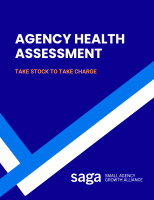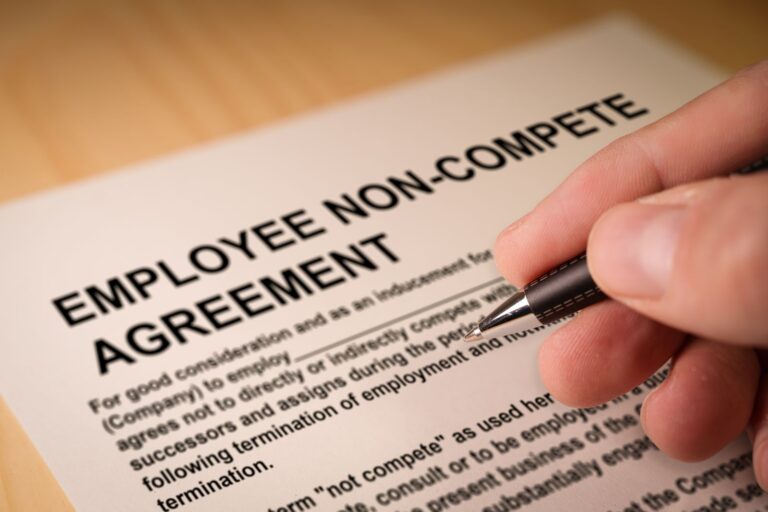Many PR and marketing agency owners dream of selling their businesses one day. For most, it will be the first (and often only) time that they have entered into discussions about an acquisition.
Before you decide that selling is the right move, you should know about the process.
Over the last couple of decades, I have been part of numerous acquisitions of varying sizes on both sides of the table. The perspective I offer below is based on those experiences, as well as conversations I have had with agency owners and experts along the way.
Most agencies don’t get sold for a life-changing amount of money.
When many people think about a business being sold, they think about the companies that make the news. They see billionaires selling their enterprises and raking in the dough.
Agencies aren’t like that.
Some – but nowhere near all – agency deals will provide enough cash for an owner to retire at something close to their pre-retirement lifestyle.
Very few will provide the kind of cash that allows the owner to upgrade their lifestyle if they so choose.
Most M&A transactions in the agency space are just graceful ways for the owners to exit while hopefully banking at least some cash along the way.
Many of the agency deals you read about publicly aren’t all that great.
One of the things that fuels the interest of owners in selling their own agencies is reading about acquisitions in industry trade publications.
Almost all of those stories omit the terms of the deal – not because the reporters weren’t doing their jobs, but because neither party has a real interest in disclosing them publicly.
That’s because a lot of the agency sales are almost entirely dependent upon future performance to determine the total value. Or because the deal is a distress sale designed to rescue an agency that is struggling financially or otherwise.
Still other deals are so-called “acquihires” that just give the acquiring agency access to a larger team but without a truly meaningful payday for the selling owner.
Your agency’s value is whatever you and the buyer agree it is.
Many owners have the idea that there is a surefire way to assign a value to your agency. They may have read about multiples of earnings or revenue and assume that’s how the sales price will be determined.
The reality is that the buyer will decide how much they are willing to pay, and then you must decide if you will accept it.
Just as you can when you sell a house, you can get an appraisal or estimate from an expert, but circumstances have a significant impact on both parties’ willingness to accept a certain number.
A valuation of your agency can be a useful tool, but it is no more definitive than a home appraisal. It might be in the ballpark of the final deal, but it rarely matches exactly.
Many factors go into determining the buyer’s decision about an agency’s value.
Typically we think about revenue and profits when we are deciding how to value a business. After all, many business articles talk about multiples of those two figures when discussing the sale of any company.
Those multiples usually get used after the fact to justify a sales price to external audiences.
The truth is that buyers and sellers can be motivated by many different factors.
For example, a buyer will likely pay a premium for an agency that has demonstrated consistent recent revenue growth coupled with consistent profitability. That seems pretty obvious, but there are many less obvious factors.
Some of the things that buyers consider include client lists, team members, geographic presence, and capabilities. Those are just a few and only cover the factors on the selling side.
Circumstances within the buyer’s business also have an impact. Do they have a lot of cash on hand they want to invest? Have they struggled to grow organically and want to grow by acquisition – perhaps to make their own agency look better to potential buyers?
Sellers, too, have factors that drive their willingness to push for a higher sales price or accept a smaller one.
The more you want to get out of your business, the tougher it is to press for a larger deal value. If you have built a business that you enjoy owning, you are in a much stronger position to hold out for the best terms possible.
Your profitability probably isn’t what you think it is.
Hopefully you have some idea about how profitable your agency is today. Chances are you are wrong, however.
In small agencies in particular, little things can make a big difference in your profitability percentages.
If you pay yourself a low salary, that can inflate the appearance of profitability.
If you bury all sorts of legal but not absolutely necessary expenses on your books for the tax benefits, that can deflate the appearance of profitability.
This will all come out in the process of selling your business. A good M&A advisor can help you clean up your books to represent your numbers fairly to potential buyers, but ultimately a lot of it will still come down to how the buyer chooses to characterize certain expenses.
Not all sales are created equal.
The actual terms of the sale matter. A lot.
Two agencies might be sold for the same price, but the actual value of that deal to the selling owner can be very different depending upon what the final legal documents include.
The timing and conditions of payments, future employment commitments, and other provisions all impact what you can do post-sale as well as how much eventually ends up in your bank account.
Having sound legal and financial advice as you negotiate the final terms is absolutely essential to make sure that you get the best possible deal.
You likely won’t get paid in full at closing.
If you agree to sell your agency for $1 million, you aren’t likely to see your bank account grow by that much on the date of closing.
In fact, you probably won’t see more than 30 to 40 percent of the deal total as your initial payment.
The remainder will be paid through an earn-out that lasts for several years. Typical earn-out scenarios for agencies include payments for at least two and as many as five years post-sale.
Importantly, anything after the first payment is rarely guaranteed and the certainty depends a lot on how the terms of the deal have been written coupled with how honestly the buyer behaves.
Sales price is based on profitability, but adjusted by revenue growth
You will need to work for the buyer for years after the sale.
While some agency owners do walk away right after the sale closes, that is a very small minority of the deals that are done in the agency space today.
When it does happen, it usually comes about because of some extenuating circumstance – like health concerns – and often comes along with a discounted sales price or much greater uncertainty about future payments.
Most buyers will want you to stick around to help arrange for a smooth transition of employees and clients.
The length of your employment contract usually will (and probably should) match the length of your earn-out. That means two to five years of employment with the buyer.
You will have a real boss for the first time in years.
Potential buyers will tell agency owners that they want them to be a true partner in the business after the sale closes. Many of them mean it. Fewer carry through with those lofty words over time.
The truth is that whoever buys your business is in charge – completely – unless you negotiate deal terms that say something different.
That means that you won’t be calling all of the shots, even if your agency brand is slated to continue to operate independently after closing.
You will be accountable to someone else. They will likely decide your bonuses, review your expenses, and approve your time off.
That can be a jarring adjustment for someone who has usually owned their own business for a decade or more before selling.
Selling your agency takes a lot of time.
It usually takes years from the time you first consider selling your agency to the day when you can finally walk away.
If you have just started to think about selling, it will probably be 5 to 10 years before you hand over the keys and ride off into the sunset.
Some things that impact the timeline include whether or not your agency is ready for a sale today. Most agencies require some proactive planning and implementation to get into the strongest possible position.
For example, is your agency completely dependent upon you? Do your last three years of financial records look really attractive to a buyer? Are all of your client contracts in order?
Even if you are ready for a sale, have you developed a network that includes potential buyers? Will you be working with a broker or advisor to help facilitate the sale? It may take years to properly develop some of these relationships.
The sale process itself will probably take a year from the initial serious conversation. First, you will do a bit of a dance between buyer and seller to determine initial alignment, then you will take the time to hammer out the framework of a deal.
Even though you have an agreement in principle with the buyer, you will need to put it in writing, first with a Letter of Intent. That takes a few weeks in most cases.
Then you move on to due diligence where the buyer scours your records to uncover any potential problems. That takes at least a month (and often more) in most cases.
Finally, you negotiate the actual sales agreement. Depending on how responsive the lawyers are on both sides, that can take weeks or even months.
Now the deal closes, but you still have to work through the earn-out period.
You get the picture. This isn’t selling a car where you can get in and out quickly.
The first price you agree to probably isn’t the amount you actually receive.
The number that you and the buyer agree to in person or on the phone usually represents the high water mark. It will only go down from there.
The Letter of Intent usually includes the price that the two of you agreed upon, but often begins to introduce some caveats and conditions that could reduce the total deal value. At a minimum, it probably starts to introduce more risk that you won’t see the total amount discussed.
More often than not, the Due Diligence process will have the buyer perusing your records and discovering things that they don’t like. Or at least that they pretend to be surprised by.
That means more conditions on the sale and usually a reduction in its total value.
Then the lawyers get deeply involved. Expect the buyer’s legal team to try to erode that total value even more. Their accounting folks will likely get in on the action, too, to try to characterize outstanding invoices, cash on hand, and unpaid liabilities in the most favorable way possible to minimize their own outlays.
All of this only gets you to that first payment received at closing.
It is not uncommon for earn-out targets to remain unmet. If you aren’t working for the buyer post-sale in a role where you have considerable control over the success of the metrics used to determine those payments, your odds of receiving them in full decrease even further.
None of these reductions assume any ill-will or bad intent on the part of the buyer, it’s all just part of the process. And it is the job of you and your professional advisors to protect your interests as much as possible.
Despite the challenges, there are good reasons to sell.
If you have gotten this far, you might think that I believe selling your agency is a bad idea. Far from it.
Selling can be an excellent way to transition out of the agency you own while generating some additional cash from the business that you have built.
It’s just important to go into the potential with open eyes about what it really means for you so that you can decide if selling is right for you and then negotiate the best terms possible if it is.
I also want you to avoid relying on the proceeds of the sale of your agency to provide for your retirement or any other life event. Agency M&A is simply too unpredictable to be the basket in which you place all of your eggs.
Look at a potential sale of your agency business as the dessert, not the main course.










